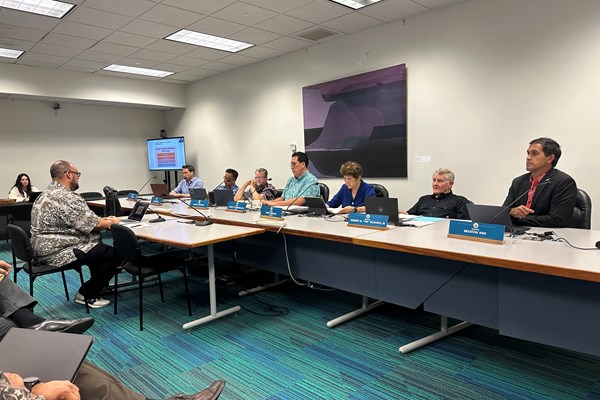Senate Committee Examines Hawai‘i’s Performance-Based Utility Regulation
Jun 26, 2025

Ulupono Initiative advocates for stronger incentives to accelerate renewable energy goals
The Hawai‘i State Senate Committee on Commerce and Consumer Protection received an informational briefing on June 24 about the state’s Performance-Based Regulation (PBR) framework for electric utilities, examining how the system impacts utilities and ratepayers.
Michael Colón, energy sector director at Ulupono Initiative, presented an overview of PBR, which was designed to shift utility incentives away from traditional capital investment toward achieving specific performance goals including renewable energy deployment and cost control.
“The idea is to break the direct link between investment levels and revenues,” Colón explained, referencing the 2018 state law that established Hawai‘i’s PBR framework.
Approved by the Hawaii Public Utilities Commission (PUC) in late 2020, PBR represents one of the most significant regulatory shifts in the U.S. power industry. With the state’s goal of reaching 100% clean energy by 2045 and recent data Ulupono collected showing that 91% of Hawai‘i residents support expansion of renewable energy resources on the islands, the conversation is extremely timely.
The briefing comes at a critical time as Hawai‘i works to maintain its commitment to performance-based regulation. In early 2025, the PUC issued a new ruling that returns the state to an outdated rate-setting process for electricity, which could drive up residents’ electric bills and slow the state’s transition to clean energy while reducing utility accountability.
“Rather than adopting an innovative, streamlined review that could have addressed financial concerns without unnecessary regulatory burden, this decision returns Hawaiian Electric customers to an outdated, costly, time-consuming, and potentially counterproductive process,” Colón said.
The return to a traditional rate case model, which rewards spending over results, could leave customers footing the bill. It also ignores Hawai‘i’s PBR law, which was created to align utility profits to performance and efficacy.
The committee, chaired by Sen. Jarrett Keohokalole, examined ongoing discussions about rate-setting methodologies, including proposals to combine forward-looking forecasts with historical cost data to improve both flexibility and cost control. The briefing also included presentations from the PUC and Department of Commerce and Consumer Affairs on related topics.
Watch the full presentation: The complete briefing is available on the Legislature's YouTube channel

